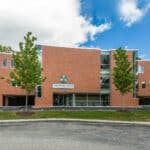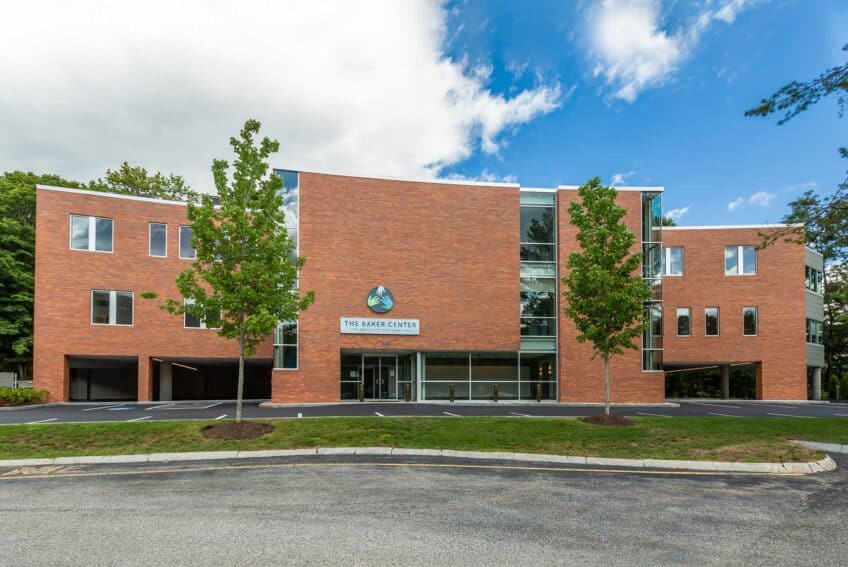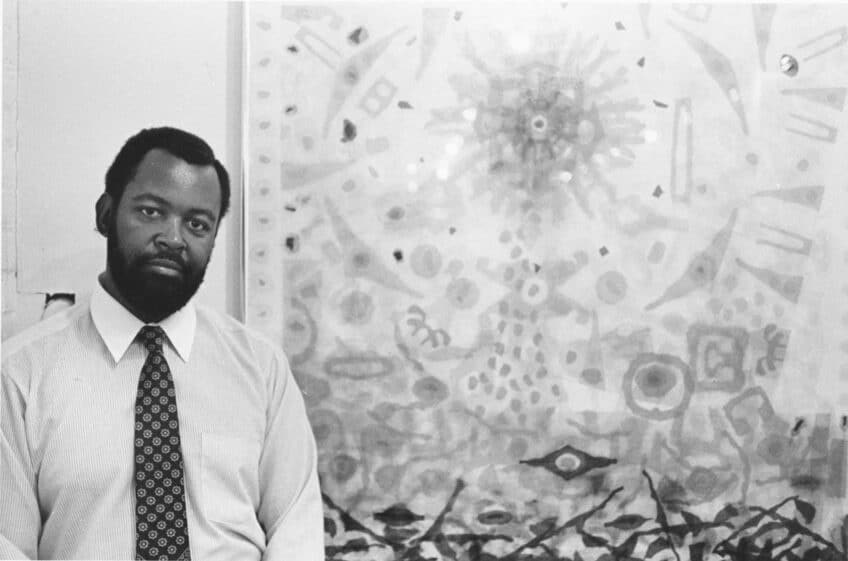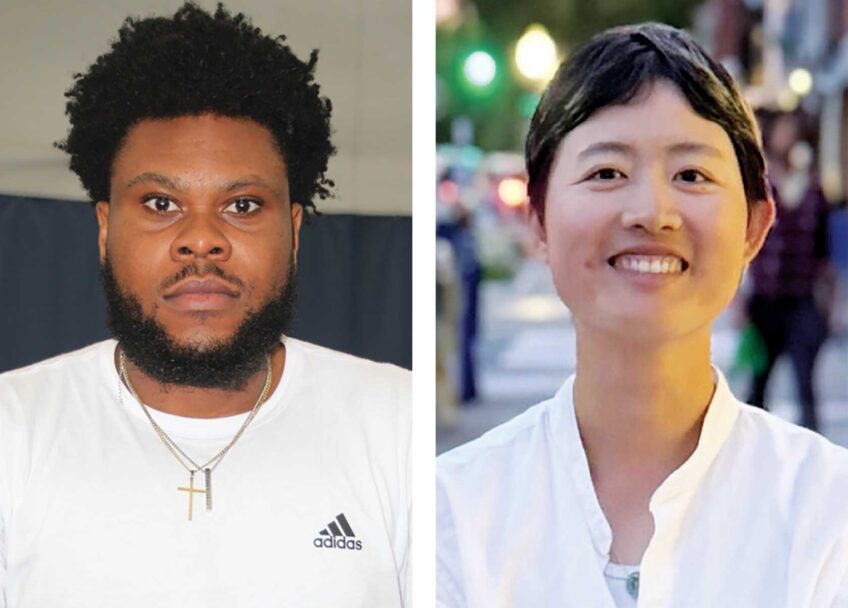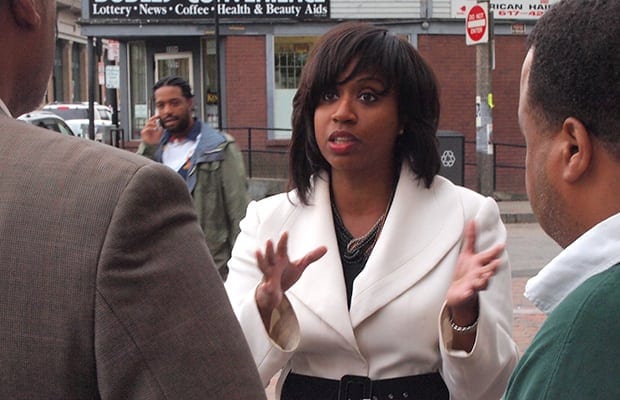
In 10 minutes on a sidewalk in Dudley Square, City Councilor At-Large Ayanna Pressley engages in a series of conversations with constituents that outline the highlights of her work over the last two terms.
Dressed in a finely-woven grey houndstooth suit, business owner Michael James Christian expresses more than a little skepticism about the efficacy and effectiveness of the council.
Pressley steers the conversation toward her priorities for k-12 education, how she has been advocating for more funding for wraparound services for children who come to school with what she calls “adult problems” — child abuse, parents with addiction issues, homelessness and traumas.
“We’re not allowing teachers to be teachers because they’re too busy being social workers,” she says. “At the end of the day, if a child enters their school and isn’t ready to learn, it doesn’t matter how good the teacher is at teaching.”
Then, as she often does, Pressley gives Christian a snippet of her own life story, how she came to school, the child of a single mother with a drug-addicted father, the victim of sexual abuse — and how, despite tests that showed above-average intelligence, she failed to thrive in school.
When community activist Vivian Phillips asks her about what the council is doing to help people with criminal records find work, Pressley turns again to her experience with her father, whose addiction landed him in prison.
“I know intimately how hard it was for my father to reintegrate into society,” she says. “We have to create more CORI-friendly jobs. That’s why I trying to get more restaurants to open in Roxbury. Because culinary arts is one of the most stable jobs people with CORIs can get.”
Since her first run for the Council in 2009, Pressley has used her personal story to drive her work, focusing heavily on issues of violence and sexual abuse.
She has told parts of her personal story on the floor of the City Council chambers, where she first publicly disclosed that she was sexually abused as a child, and on the campaign trail, where in 2012 she placed first among at-large candidates, with more than 37,000 votes.
In the Sept. 24 preliminary, Pressley cut though the campaign chaos generated by a field of 19 at-large candidates and again topped the ticket with 42,875 votes.
Throughout the campaign, Pressley says she’s staying focused on her work as head of the Council’s Committee Women and Healthy Communities.
To bring more resources into schools with students suffering from abuse and traumas, Pressley is meeting with representatives of schools and community health centers. She’s held hearings and fought to increase the school budget to fund more services.
She has also fought for comprehensive, culturally competent and age-appropriate sex education for high school students. She brought together a coalition of groups to work on a plan that has been adopted by Boston Public Schools and will soon be implemented.
Pressley says she was well aware that sex education presents more than a little political risk.
“There were people who thought I was crazy,” she says. “People see this as a political third rail. It makes people uncomfortable. But I believe there’s a real need for this.”
One of her boldest political moves — revealing her status as a survivor of sexual abuse — underscores what she says is a strong commitment to combatting all forms of violence.
“I really challenged this community, this city, to have this conversation,” she says. “If you want to end violence, you have to understand that all violence is interconnected. If you talk to young people involved in gangs, most of them grew up in households where they witnessed their mothers being victims of violence.”
Last year, Pressley sponsored a community meeting called “Raise Your Voice” for women who were victims of sexual violence.
“We connected people to services,” she says. “We had husbands come and say, ‘My wife is a survivor of sexual violence. How can I support her?’”
While policy makers in Boston have focused heavily on law enforcement and gang intervention to combat gun violence, Pressley says she wants to inject a more holistic approach into the public discourse.
“We have to end all forms of violence — sexual, domestic and street violence,” she comments. “We will never have peace in our streets until we end violence in our homes.”
While Pressley presses for large-scale changes in public policy, she is also looking at small-scale changes.
At Boston Medical Center, families of murder victims were routinely dismissed almost immediately after learning of their loss. Pressley worked with a coalition of anti-violence activists to persuade BMC staff to create a bereavement room where families can be connected to services.
“You have to make sure people are getting psychological first aid,” she says.
While Pressley’s focus on families and children is threaded through all her work on the council, it doesn’t seem to limit what she does. She currently is pushing liquor license reform, with a home rule petition that would remove the state’s cap on the number of liquor licenses municipalities can issue to restaurants.
Pressley says expanding the number of liquor licenses would make it easier for restaurants in neighborhoods like Roxbury to succeed, since the profit margin on drinks is much greater than what restaurants make off of selling food.
“You can’t have a stable neighborhood without restaurants,” she says. “It’s great we have people coming to Dudley to work. We have to get them to stay here after work.”
Currently, the supply of liquor licenses is heavily restricted and licenses cost restaurateurs more than $200,000 to acquire. In the North End there are 99 liquor licenses. In Roxbury there are just 26, and 17 of those are for liquor stores. In Mattapan there are only nine.
Out on the sidewalk in front of the Citizen’s Bank in Dudley Square, Pressley wraps up her conversation with a small gathering of outreach workers, community activists and passersby, answering one last question: Why doesn’t she have an office in the community, the way former Councilor Chuck Turner had?
Pressley explains the difference between being a district councilor, representing just one neighborhood, and an at-large councilor, representing the whole city. She talks about the challenges of serving all neighborhoods and not appearing to favor one over any other.
“You can come to City Hall any time,” she adds. “It’s the people’s house. But I’m really about meeting people in the neighborhoods.”
She exchanges cards with several of her audience members before taking her leave. As she walks away, Michael James Christian professes a new appreciation for Pressley.
“She’s one of the few you actually see walking around the community, asking people their opinions” he says.



